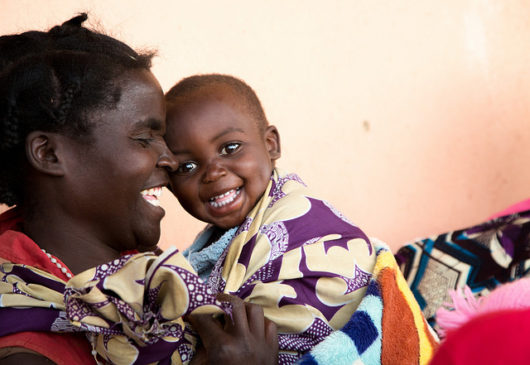Maternal Health Program for Low-Income Families

Since 2001, the province of Manitoba, Canada, has provided 63,000 pregnant and low-income women with cash supplements to help them take care of themselves and their families. The program is called the Healthy Baby Prenatal Benefit.
The supplements are “financial cushions” meant to provide women with the money they need to get health care, healthy food and nutritional supplements. Researchers who have worked with the program say that it has provided a blueprint for other provinces in Canada to follow. If this maternal health program for low-income families works well on a cross-country scale, it could possibly be further developed to help other countries as well.
Maternal Health Program
The money is not the most important part of this project, though. Because the cash supplement was only around $62 per month, the mothers cannot afford many things with it. However, the financial cushion encouraged women to seek healthier food, better transportation options and other things they might not splurge on.
Also, this was a gateway for ensuring that women get into prenatal care as soon as possible. Along with the stipend comes a community. There are approximately 70 prenatal and postnatal support groups across Manitoba that educate women about their future children, what they need to know during pregnancy, and other tips and tricks they may not have received otherwise. All in all, it has been a successful maternal health program for low-income families.
Impact of the Program
Women who have participated in the Healthy Baby Prenatal Benefit program said they felt like confident mothers after going to support groups and using their supplements to better their lives. The program drew inspiration from France, the country that is touted as one of the best countries in the world to raise children. Programs like the Healthy Baby Prenatal Benefit are inspiring others around the world as well.
Cambodia has set up a UNICEF funded pilot project that gives stipends to women if they follow up on their prenatal checks. It was relatively successful, which gives hope to the government and other nongovernmental organizations that funding projects like this are important in the long term. Taking care of the mother’s body while pregnant not only helps the future child but also helps the mother. It decreases the death rate among pregnant women, which can drastically change a child’s future.
According to the World Health Organization (WHO), 830 women die every day from preventable issues related to pregnancy and childbirth and 99 percent of those women come from developing countries. Women in rural areas are affected the most because they do not have access to adequate health care. The most interesting thing that can be concluded from these facts is that skilled care before, during and after childbirth can save the lives of women and newborn babies. This directly relates to the cash programs in countries like Canada, France and Cambodia.
Other Countries That Need Similar Programs
There are a lot of countries that could benefit from the programs such as the Healthy Baby Prenatal Benefit program and that can develop their own maternal health programs. In this article, three of such countries are listed.
Sierra Leone is the first country on the list that could improve maternal health care. There are around 1,360 deaths per every 100,000 live births in the country, which makes the situation urgent. The second on the list is Chad, a country that has approximately 856 deaths per every 100,00 live births. Children make up for 57 percent of Chad’s population and this dangerous trend could potentially leave many of them without mothers. In Nigeria, there are approximately 814 deaths per every 100,000 live births. Nigeria has looked into cash supplement programs before, but creating one specifically for pregnant women would create a great and much-needed change.
Developing countries can and should follow Canada’s example and success with a maternal health program dedicated specifically to low-income families. There is a successful blueprint in the world and it just needs to be adapted to each country that needs it.
– Miranda Garbaciak
Photo: Flickr
